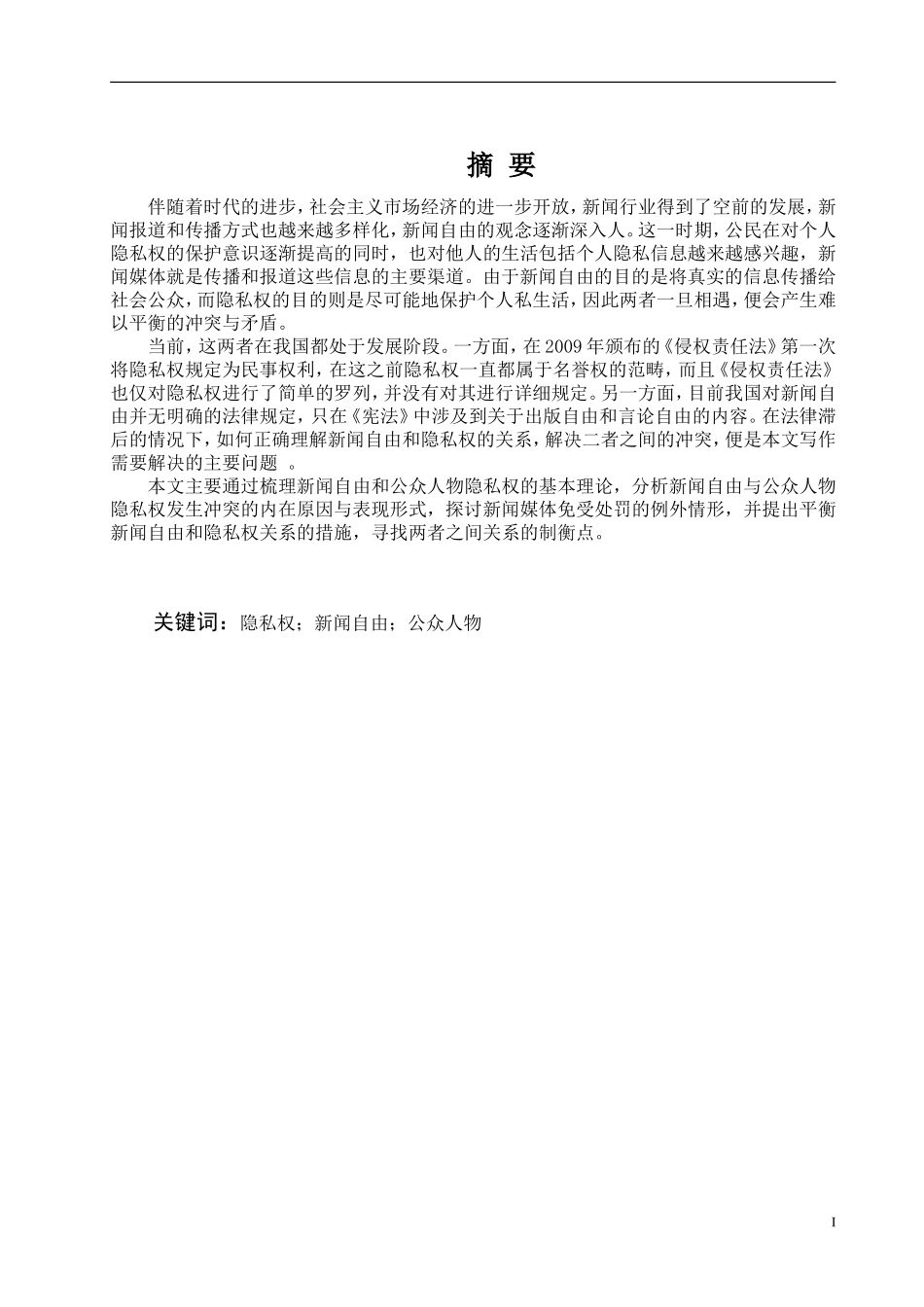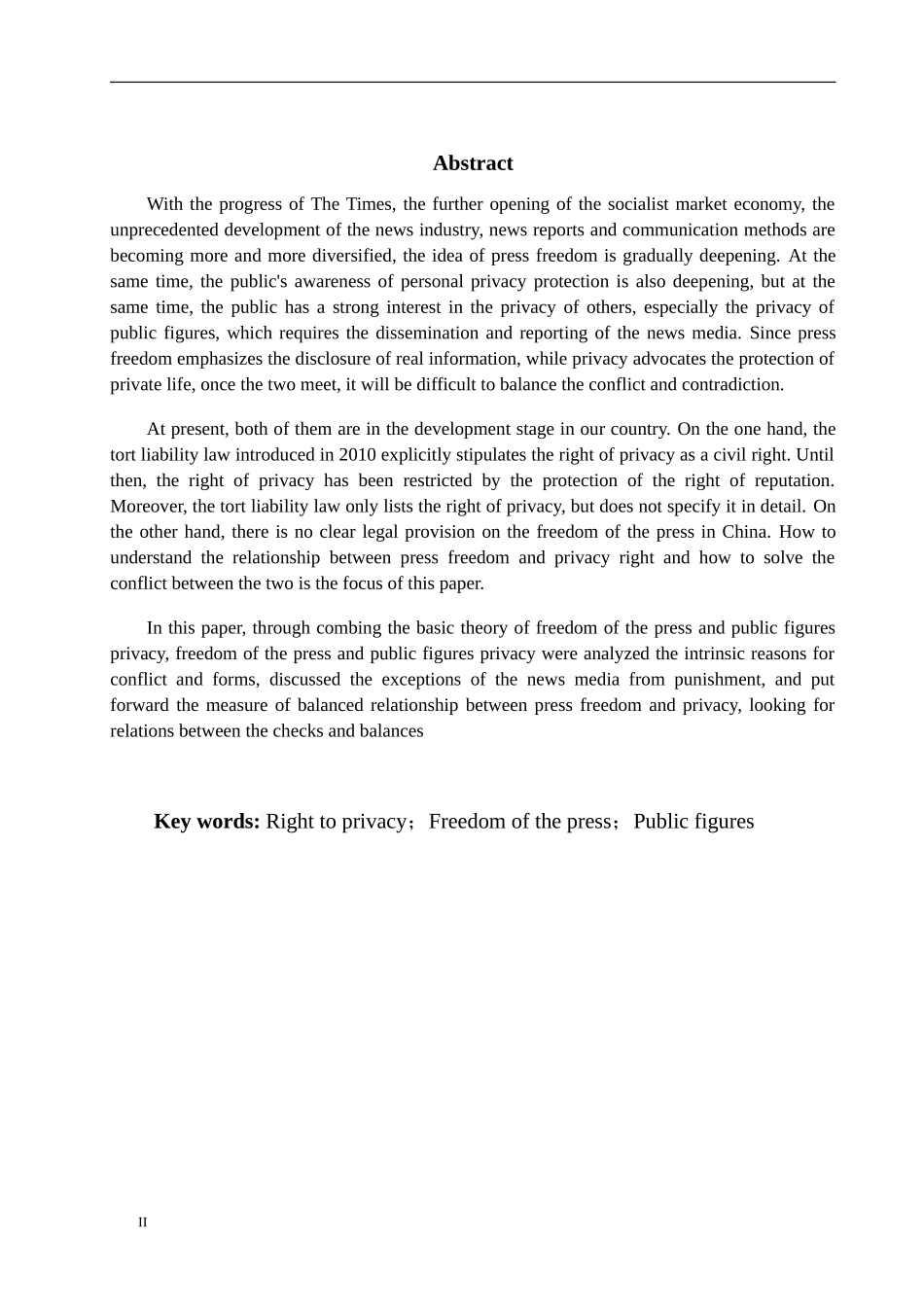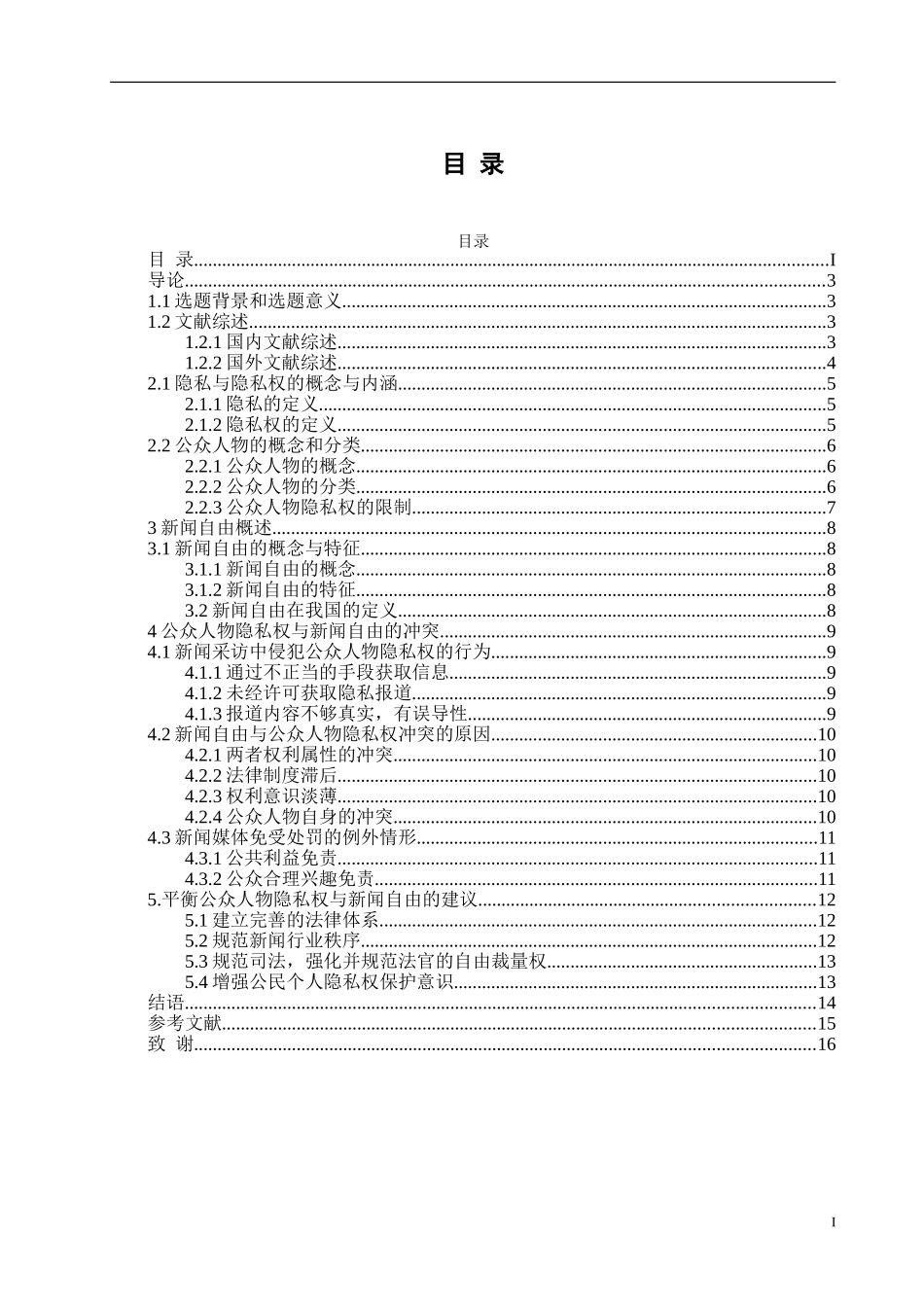摘 要伴随着时代的进步,社会主义市场经济的进一步开放,新闻行业得到了空前的发展,新闻报道和传播方式也越来越多样化,新闻自由的观念逐渐深入人。这一时期,公民在对个人隐私权的保护意识逐渐提高的同时,也对他人的生活包括个人隐私信息越来越感兴趣,新闻媒体就是传播和报道这些信息的主要渠道。由于新闻自由的目的是将真实的信息传播给社会公众,而隐私权的目的则是尽可能地保护个人私生活,因此两者一旦相遇,便会产生难以平衡的冲突与矛盾。当前,这两者在我国都处于发展阶段。一方面,在 2009 年颁布的《侵权责任法》第一次将隐私权规定为民事权利,在这之前隐私权一直都属于名誉权的范畴,而且《侵权责任法》也仅对隐私权进行了简单的罗列,并没有对其进行详细规定。另一方面,目前我国对新闻自由并无明确的法律规定,只在《宪法》中涉及到关于出版自由和言论自由的内容。在法律滞后的情况下,如何正确理解新闻自由和隐私权的关系,解决二者之间的冲突,便是本文写作需要解决的主要问题 。本文主要通过梳理新闻自由和公众人物隐私权的基本理论,分析新闻自由与公众人物隐私权发生冲突的内在原因与表现形式,探讨新闻媒体免受处罚的例外情形,并提出平衡新闻自由和隐私权关系的措施,寻找两者之间关系的制衡点。关键词:隐私权;新闻自由;公众人物IAbstractWith the progress of The Times, the further opening of the socialist market economy, the unprecedented development of the news industry, news reports and communication methods are becoming more and more diversified, the idea of press freedom is gradually deepening. At the same time, the public's awareness of personal privacy protection is also deepening, but at the same time, the public has a strong interest in the privacy of others, especially the privacy of public figures, which requires the dissemination and reporting of the news media. Since press freedom emphasizes the disclosure of real information, while privacy advocates the protection of private life, once the two meet, it will be difficult to balance the conflict and contradiction.At present, both of them are in th...


